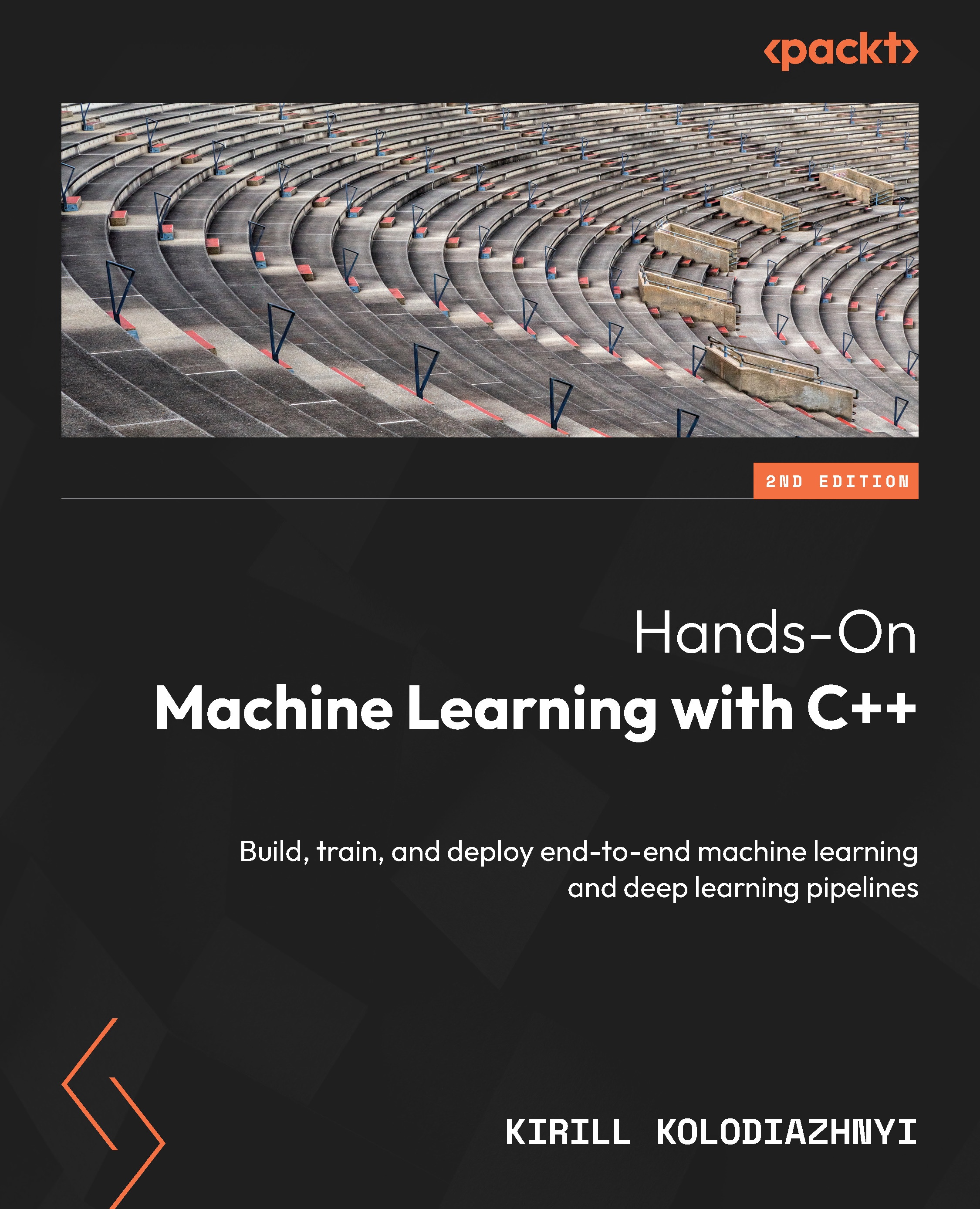-
Book Overview & Buying

-
Table Of Contents

Hands-On Machine Learning with C++ - Second Edition
By :

 Sign In
Start Free Trial
Sign In
Start Free Trial

In this chapter, we considered how to load data from CSV, JSON, and HDF5 formats. CSV is easy to read and write, making it suitable for small to medium-sized datasets. CSV files are often used for tabular data, such as customer information, sales records, or financial transactions. JSON is a lightweight data interchange format that is human-readable and easy to parse. It is commonly used for representing structured data, including objects, arrays, and key-value pairs. In ML, JSON can be used to store data for training models, such as feature vectors, labels, and metadata. HDF5 is a high-performance file format designed for scientific data storage and analysis. It supports large datasets with complex structures, allowing for efficient storage of multidimensional arrays and tables. HDF5 files are commonly used in applications where large amounts of data need to be stored and accessed efficiently.
We saw how to convert the loaded data into objects suitable for use in different...
